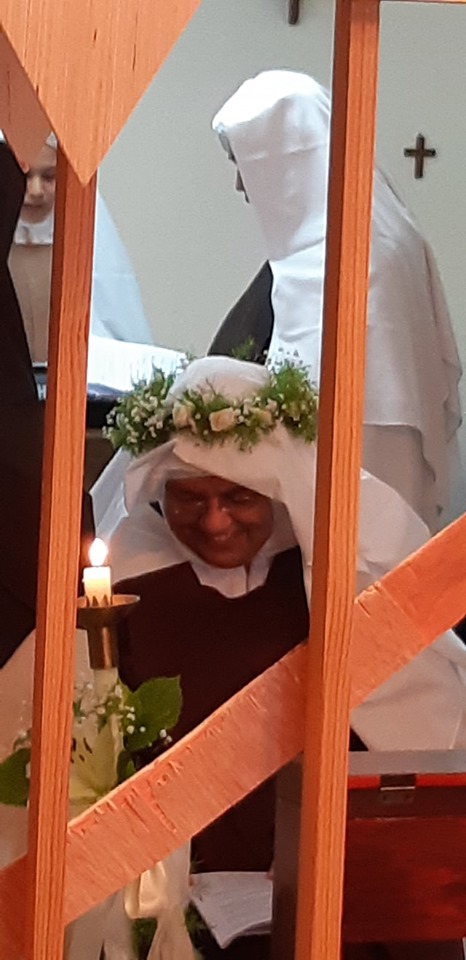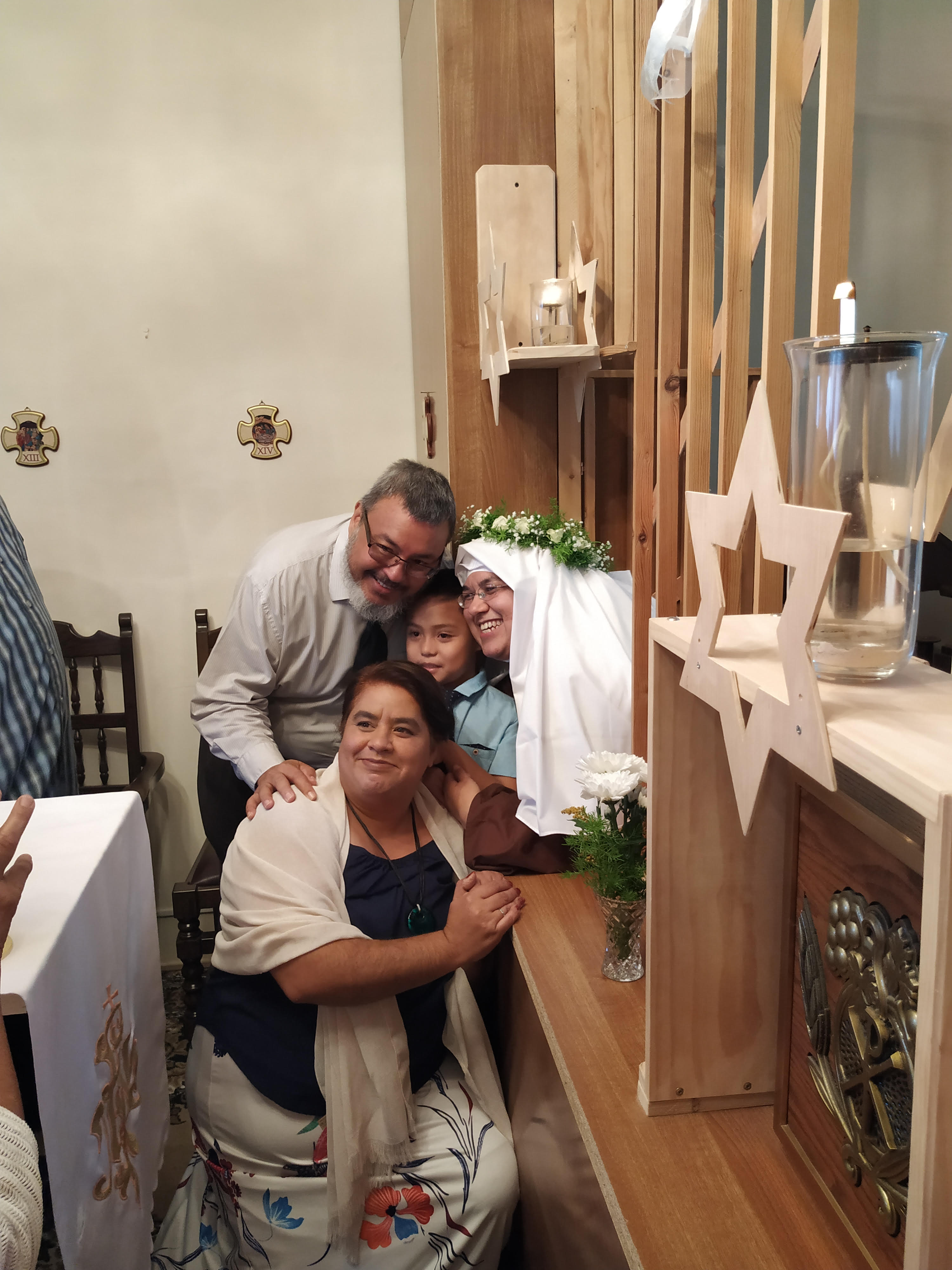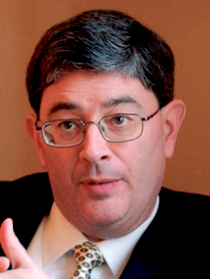In “Cardinal Pell and I Are Judged ‘Guilty for Being Accused.’” I wrote that Cardinal George Pell has joined me among the falsely accused and unjustly imprisoned for whom a biased justice system has failed. Having lost his appeal, Cardinal Pell now must serve a six-year sentence in an Australian prison for crimes charged with no evidence, crimes for which reasonable doubt could not transcend a media circus and its resultant judicial bias.
On the night before typing this post, I listened intently to the “Papal Posse” on The World Over with Raymond Arroyo on EWTN Raymond Arroyo was joined by Fr. Gerald Murray and Robert Royal of The Catholic Thing for a discussion about current events in the Catholic Church. On that particular night, the plight of Cardinal Pell was front and center.
Robert Royal made a statement that captured well the naivete of Catholics whose sense of the legal system comes from watching TV’s “Law & Order.” I paraphrase from memory, but he alluded to not knowing a lot about the criminal justice system. Mr Royal said, “It seems that in some jurisdictions in Australia, someone can be convicted of sexual abuse with no other evidence than the accusation itself.”
This is not at all unique to Australia. It has been a fact of American justice for forty years. It has roots in the radical feminism of the 1970s and is the origin of so-called “Hashtag Justice” that presides in American courts today. Setting aside a presumption of innocence to accommodate terms like #MeToo and #BelieveSurvivors is creating a new class of victims in the news media and the justice system.
Gone is the professional skepticism upon which both institutions once relied. As an example, here is the actual wording of “New Hampshire Revised Statute Annotated 632-A 6 Sexual Assault and Related Offenses,” a law amended in response to significant lobbying efforts in the 1970s:
“The testimony of the victim shall not be required to be corroborated in prosecutions under this chapter.”
Most people just don’t understand that in nearly every U.S. jurisdiction, a man can be charged, tried, and convicted of sexual assault charges – even charges that are decades old – with no other evidence than the accusation itself from a single accuser. This is so even when the accuser has a clear avenue to financial gain by making the claims, which is the case of virtually every accused Catholic priest today.
The only hope of the accused is to accept a plea deal for a lenient sentence. Not accepting one may be seen today as evidence of actual innocence. The draconian irony is that an innocent defendant who risks a trial will spend far more time in prison than a guilty defendant who is inclined to take the deal.
UNEQUAL JUSTICE THE CASE OF RICHARD ALAN BAILEY
Before writing on the flawed trial and appellate decision in the case of Cardinal Pell, I want to profile an American legal case that many TSW readers will find familiar. It is pertinent because both cases were alleged to have taken place two to three decades ago. You may have read about this story in what I think is the most important post I have ever written: “Pornchai Moontri: Bangkok to Bangor, Survivor of the Night.”
On September 12, 2018, Richard Alan Bailey of Westlake, Oregon appeared in Penobscot County Superior Court in Bangor, Maine to answer to 40 Class A felony counts of sexual assault of two adolescent boys that occurred from 1985 to 1987. Most of his sexual assaults were also violent, a fact that especially inflicted lifetime damage on his victims.
The victims in that case, as readers may now know, were Pornchai Moontri and his older brother who were taken against their will from their home in Thailand at ages 11 and 13 in 1985. Had the case gone to trial, the State was prepared to introduce a long list of compelling evidence against Mr. Bailey stretching back thirty-three years.
That evidence included not just the detailed statements of Pornchai and his brother, but corroborating evidence from neighbors, social workers, police officers, school personnel, medical personnel, and the highly probative evidence of two brothers’ consistent claims over a period of three decades.
This was not a case of “I just remembered the details.” It was a case of “I have lived with the details every moment of my life since.” Both boys were stranded in what was for them a foreign country and neither could speak English when these vicious assaults were first occurring. The compilation of evidence was such that Mr. Bailey pled “no contest,” but the Court found him guilty of all charges.
Unable to be in the court because he was serving his own prison sentence that began when he was a teenager, Pornchai Moontri’s Victim Impact Statement was read aloud in court by a prosecutor. Defendant Richard Alan Bailey was found guilty with ample and compelling evidence of forty felony charges of child rape and other acts of violence against Pornchai and his brother.
As a result of the plea deal, Mr. Bailey was sentenced to zero prison time, eighteen years of probation, and lifetime public registration as a sex offender. He will likely never spend any time at all in prison.
Meanwhile Pornchai Moontri has been in prison for the last twenty-seven years for an offense that every informed observer – including, today, police and prosecutors – believes would never have occurred had Pornchai not himself been a victim of horrific crimes. Richard Bailey’s crimes forced Pornchai into a life of deprivation living on the streets as a homeless teenager in a foreign country.
This story and its grave injustice did not end there. In 2000, while initiating divorce proceedings from the man who has now been found guilty of these crimes, Pornchai’s mother was beaten to death on the U.S. territorial Island of Guam. The murder is today filed in Guam as a “cold case” unsolved homicide.
Pornchai’s mother was reported missing there by Richard Bailey who also later reported finding her body himself. Days earlier, a new witness asserts, Pornchai’s mother telephoned a relative in Thailand in a desperate plea that Bailey was threatening to kill her. Overtures to have this matter reopened for review have to date been without response from officials in Guam.
And thus far, at least, Pornchai and his brother have no avenue to civil recourse either. Richard Bailey has no deep pocket like the Catholic Church behind him. Not a single American lawyer would look at this matter because there is no lucrative forty-percent take from a guaranteed settlement. After being forced from his home and country at age 11, Pornchai will be forced to return from this long nightmare at age 46 as penniless as he was when he left.
I raise this case and its outcome because at every step of the way in the priesthood scandal, just about everyone involved – the Church officials, the victim advocacy groups, the law enforcement personnel, the news media, the contingency lawyers, and the court system have all claimed that the spotlight on the Catholic crisis has had a singular agenda and objective: To protect children.
THE FLAWED TRIAL OF CARDINAL GEORGE PELL
While that sorrowful mystery was winding its way through the American judicial system, a respected high ranking Catholic Cardinal was charged and placed on trial in Australia. It was a similar case involving two adolescent boys about the same ages as Pornchai and his brother, and the claims came from about the same time period.
The glaring difference is that there was no corroboration or evidence at all. There was no paper trail, no prior evidence that the case had ever surfaced. One of the alleged victims had died an accidental death in the years before the other decided to bring his claims. The case arose in the midst of a media-fueled moral panic about priests and abuse that started in America and spread to Australia. The target was a high profile Vatican official in a coliseum of predator lawyers
Over the last few weeks, the Catholic media has been abuzz with commentary about the failed appeal of Cardinal Pell. Do not take its failure as a statement that justice has been served. It has not. The story behind the initial trial is ludicrous.
A claim that Cardinal George Pell, still fully vested and having just finished Mass, spontaneously sexually assaulting two 13 year-old boys in full view in the sacristy would have raised many eyebrows of suspicion thirty years ago. But now that the priesthood crisis has been weaponized, such details have become lost in the bias.
Implausible accounts like this are now accepted as the norm. Of the three judges who heard Cardinal Pell’s appeal – Chief Justice Ferguson, Justice Maxwell, and Retired Justice Weinberg – only Justice Weinberg seems to have successfully blocked the moral panic from doing his thinking for him.
This appeal resulted in a split (two to one) decision with a compelling dissent from Justice Weinberg. He found the complainant at trial to have embellished aspects of his account and to present his details inconsistently. Justice Weinberg concluded that the evidence contained discrepancies, displayed inadequacies, and otherwise lacked probative value such that it caused the judge to doubt Cardinal Pell’s guilt.
Justice Weinberg further found that the complainant’s account of a second incident of abuse “was entirely implausible and quite unconvincing.” The judge could not exclude the possibility that the complainant had “concocted” his testimony. The appeal summary states firmly that…
“In Justice Weinberg’s view there was a significant body of cogent, and, in some cases, impressive evidence suggesting that the complainant’s account was, in a realistic way, impossible to accept. To his mind, there is a significant possibility that the Cardinal may not have committed the offenses. In those circumstances, Justice Weinberg stated that the convictions could not stand.”
Unlike Pornchai Moontri’s devastating victimization at the hands of Richard Alan Bailey, the claims against Cardinal Pell had no paper trail going back 30 years, no evidence, no eyewitnesses, no history of police or social worker reports, no corroboration from a second victim, no one backing up any of it. There were only the claims themselves, claims that I and others have examined in detail in a compelling article, “Was Cardinal George Pell Convicted on Copycat Testimony?”
But also unlike the Pornchai Moontri case, the accuser of Cardinal Pell stands to gain financially just for making these claims. This important factor has driven the Catholic scandal. Thirty years ago, it may have given pause to the purveyors of justice, but today it succumbs under the weight of Hashtag Justice. One does not #BelieveSurvivors by questioning motives such as monetary gain.
The stories of Pornchai Moontri and Cardinal Pell stand as bookends of gross injustice. Richard Alan Bailey has escaped most of the justice that is aptly and demonstrably due to him while Cardinal George Pell remains imprisoned by the perversion of justice his case now represents. In a time of moral panic, justice falters. It did here in both cases.
It remains to be seen, now, what the Church will do in response to all this. Cardinal Pell does have one more possible appeal in a year or so. Presently, he and I are the only priests so accused, convicted, and in prison who are not also dismissed from the clerical state.
That would compound gross injustice with grave sin and further weaponize the priesthood crisis. Remember Hebrews 13:3: “Remember those who are in prison as though you are in prison with them.” Please pray for Cardinal Pell and Pornchai Moontri.








